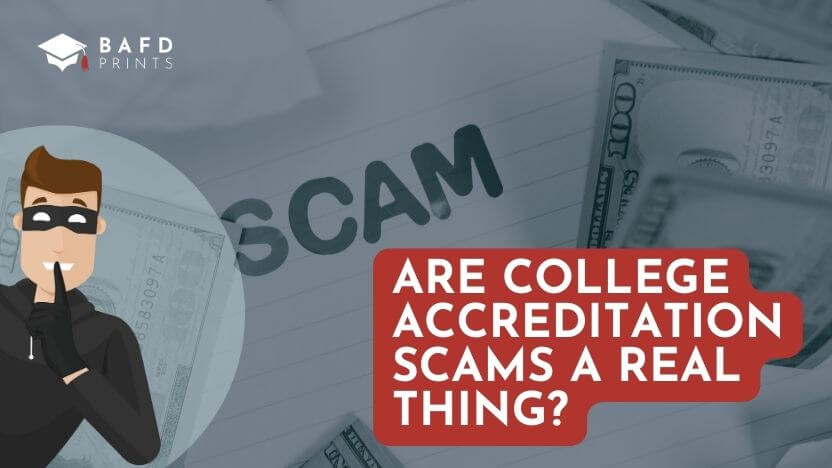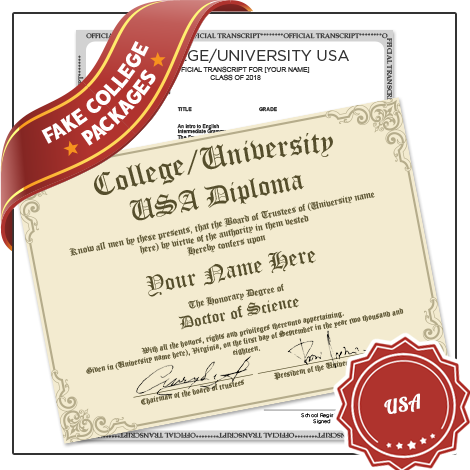
Imagine finding out the accreditation from your college held little to no value? I'm sure you would be furious. In most cases, colleges and universities are a part of a national accreditation. It is a national set of academic standards that schools must abide by. Because of this, when you transfer between schools, your credits transfer too. Imagine finding out that your credits don't transfer? Imagine getting screwed by a college accreditation scam?
How a college accreditation should work?
Most schools abide by strict educational standards. Those standards are often set by institutional accrediting organizations. There are currently 19 of them. Let's consider the "Southern Association of Colleges and Schools Commission on Colleges" or SACSCC. This is one accreditation that colleges are a part of. The accreditation sets certain standards that a school, wanting to join its accreditation, must follow. This means that one SACSCC school, values a degree from another SACSCC school. This means that credits from one school to another would transfer This is how legit college accreditation works!
Why are some colleges are forced to use shady accreditation programs?
There are a lot of for-profit institutes selling accelerated degrees for fast money. Often these are like a bachelors degree in 3.5 years. They do this by rushing lessons and over promising the value of their education. One good example of this was ITT Tech, which shut down in 2016 because of shady practices. You also see questionable practices at Christian colleges such as the Southeastern Bible College which was recently closed down too. These institutes promised a different type of education. Although a lot of these schools are no longer around, many are dealing with student debt, years after the school is gone.
Many students, at the time, though they were getting a legit education. It was easy to think they were because most of the schools said, “we are accredited”. Except an accreditation like SACSCC would never let them join. This is because their academic standards were too low. Yet they needed accreditation to look legit to potential students. They realized that any accreditation looked better than no accreditation.
Desperate to have something to show to potential students, they sought after any accreditation that would accept them. This is where the scam takes effect.
How do college accreditation scams work?


There are tons of fly-by-night institutional accrediting organizations out there for the picking. They set their own educational standards (often very low) and charge institutes to join them. This allows a college to advertise themselves as being accredited. Often students believe they are getting an accredited college degree. It all seems believable until they are ready to transfer schools. Then they find their new degree holds no value, because the accreditation their college was a part of was worthless in the eyes of other schools. With so many new schools popping up that advertise a fast education, this happens more than you may realize.
baseA real world example may be as follows. Let's say you attend a for-profit college. You're trying to earn a degree in mathematics. Halfway through your time there, you decide to transfer to a state run college. So, you forward to the new college your academic records. You are hoping a class or two will transfer. The problem you'll find is that state-run schools abide by a different set of academic standards. The new school will not accept credits from your current school. This is frustrating because the current school told you they were accredited. You were just scammed.
Is this true?
I personally dealt with this myself. I attended business classes at a for-profit school. I was under the impression that it was an “accredited school” and my classes would transfer later to a bigger school. When it came time to transfer, I found that not a single class I had taken was transferable. All of my hard work was for nothing. I was furious.
When I first spoke to the for-profit school, I was told their educational credits were transferable. I later realized that the staff had a commission per student they enrolled. They did a little fibbing to make the college look better than it was.
Is the trick behind life experience degree programs and degree mills?
Over the years, there have been many companies claiming to have verifiable degrees from online schools. This is not the same as sold by novelty print shops. These illegitimate online schools sold " " and they were diploma mills. One of these companies, which no longer operates, included Jefferson High School based out of St. Kitts. They also operated under the name Enterprise High School Online. The company was selling high school degrees they claimed you could use for jobs and more. They were accredited. Except it was accredited by JHSO. Sure, it sounded legit, but what was JHSO? Well, it was their own school? Basically JHSO stands for "Jefferson High School Online". It was their own phony accreditation program. It was all total BS.
Other times somebody may start their own accreditation program. Let's call it the National Bible College Studies of America, or NBCSA for short. I may find what a Christian college feels is fair knowledge for a degree in a particular field of study. I will then charge that college, and maybe many others, to join my accreditation. Now they can say they're accredited and it's a good look for the school. Sure, you may transfer from one NBCSA school to another and the classes may transfer. In most cases, a legit school will tell you the degree holds no value because NBSCA holds no value.
The reality, college accreditation scams are a real issue. It's best to question the authenticity of institutional accrediting organizations, colleges and universities claim to be a part of.









